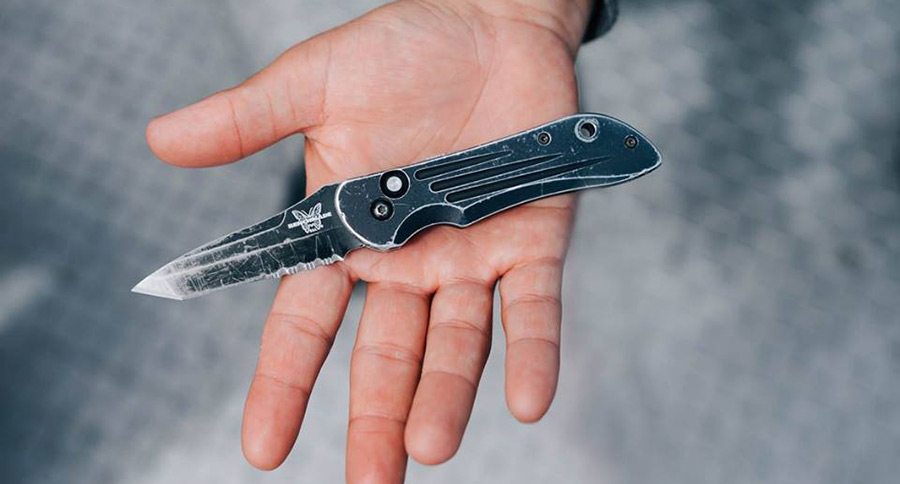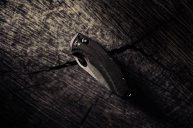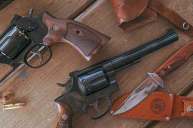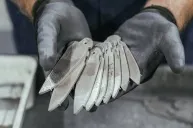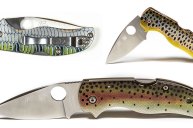Whether it's a hand-me-down or brand new, giving a kid their first knife is a great thing to be a part of!
Can you remember yours?
Most of us can think back to a time when we were kids and we looked up to grownups because of the things they got to do and tools they got to use.
As outdoorsmen and women, receiving a knife for the first time is a milestone that marks someone beginning to become less of a kid. Because of that, we wanted to help prepare those of you who might be gifting a kid their first knife sometime soon.
Whether it's as a holiday gift or something special for hunting season, a knife can be a memorable way to show a kid that they're important.
Gift-giving
There is a method to this. You don't want something that should be viewed as special to be lost between video games and cell phones or a kid opening a bunch of presents at a party.
Wait until after the craziness of the birthday or other festivities settle down and present the gift more privately. It doesn't have to be a big secret, but going this route will place more significance on the event.
Knives almost always come with a nice box, so that's a good start. If you're going to wrap it, we'd suggest something subdued instead of flashy.
Another way to put it: Plain brown paper has a better effect than red and green cartoon reindeer!
Don't make too big a big deal out of it, but be serious in your approach. Present the knife as a gift you really thought he or she should have, because they're, "...responsible enough to have one now."
Tell them they're trustworthy and are able to handle something of this magnitude, and you're glad you get to give it to them.
Now, stop the warm fuzzy feelings and get one big thing straight: Your job as knife-giver isn't done.
Along with the gift comes...
Owning a knife takes responsibility and knowledge, and it's really up to the adult who gives a knife to teach those things.
Uncles or Grandpas, if you think a knife will score you some brownie points and the kid's parents will deal with it, you're sorely mistaken.
Safety comes first, and you need to tell them that. Don't treat a knife like anything other than what it is: a serious tool. One that can be extremely useful if owned and used properly, and one that can do serious harm if used improperly.
A sharp knife can do damage and a dull one can too (sometimes worse). Only using them in the correct applications and always paying close attention while using the knife are critical.
Here are the main things you'll have to pass along, right after the gift of a knife is given:
- Always hold a knife with a strong grip. Strong enough to leave no doubt about the knife staying in your hand.
- Always cut away from your body, with even and consistent pressure.
- Carry and store knives in the proper way, with a sheath, case, or in a closed position (if it's a folding knife)
- Keep it away from younger siblings.
- Most importantly, take good care of the knife. Keep it oiled. Keep it sharp. This can help to also teach them respect and care for tools and equipment.
The list of safety rules should continue to grow. The gift of a knife comes with the gift of time spent learning and abiding by them.
It also means you'll get to spend more time with the child, which is a gift to yourself in the end.
NEXT: WE ASKED WIDE OPEN SPACES WRITERS HOW THEY CARE FOR KNIVES, AND HERE'S WHAT THEY SAID
